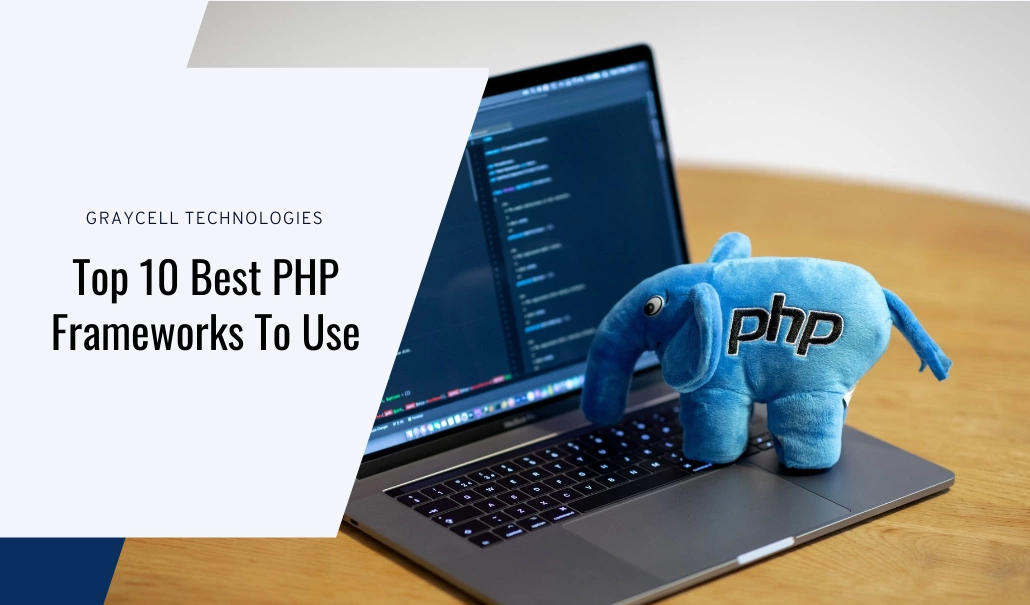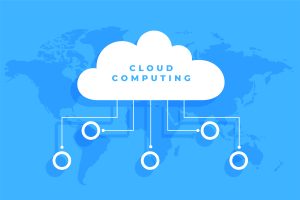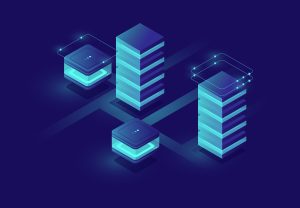PHP is the most popular server-side scripting language for web development, web application, and entire e-commerce development. It remains the top choice for web development since it first came into existence. This is because PHP has been a secure platform for two decades in terms of creating websites and web applications. Even today half of the websites are developed using PHP, which indicates the market demand for PHP.
PHP is the abbreviation of Hypertext Pre-processor and earlier it was abbreviated as Personal Home Page. It was created by Rasmus Lerdorf in 1994. It is a general-purpose programming language and a server-side scripting language embedded with HTML to develop web applications and websites. Top websites like yahoo.com, youtube, facebook.com, wikipedia.com have used PHP at some point in their online existence.
What is a PHP Framework?
PHP frameworks provide code libraries for commonly used functions and classes. The library functions and classes follow standard web development syntax and are well-tested. Using them, you won’t have to write the same code again and again. This is because low-level functionality is taken care of by the PHP framework itself.
Why Is There a Need to Use the PHP Framework?
PHP frameworks provide code libraries for commonly used functions and classes. The library functions and classes follow standard web development syntax and are well-tested. Using them, you won’t have to write the same code again and again. This is because low-level functionality is taken care of by the PHP framework itself.
Why Is There a Need to Use the PHP Framework?
With the framework, you have the pre-built modules and basic foundation or structure where you can perform the tedious tasks of coding. This foundation also helps developer speed up the web development process.
Here are some of the advantages of using PHP framework:
- Speed
- Security
- Faster Development
- Access Databases Efficiently
- Supports CMS
The Top Ten PHP Frameworks that have already been tested by millions of web developers are:
- Laravel

Since the release in 2011, Laravel is one of the most widely used free, open-source and popular PHP frameworks in the world. It is because most of the developers describe Laravel as expressive and easy to understand. At the same time, Laravel is good enough for building critical and complex web applications.
Some reasons to consider Laravel:
- Large community
- Elegant syntax
- Huge libraries
- Propensity for scaling
- Advanced security
- High-quality and clear documentation
- CodeIgniter

CodeIgniter is another popular PHP framework, designed by EllisLab and known widely for its speed and small footprint. It is also known for its small size (it’s only 2 MB in size, including the documentation). With minimal configuration, it offers quality error handling and easy-to-read documentation. CodeIgniter is one of the most favorite PHP frameworks among developers across the globe.
Some reasons to consider CodeIgniter:
- Small in size
- Easy to setup options
- Minimal configuration
- Minimum documentation
- Comes with built-in security features
- Supports both web page and database caching
- Laminas Project (Zend)
Laminas Project, formally known as Zend is a complete object-oriented framework. It was built on the agile methodology, which helps you to create high-quality and robust applications. Laminas come with enterprise-ready PHP components including input validation, filtering, dependency injection, and more. This framework is composed of three parts MVC (Model–view–controller), Mezzio, API tools and it uses features such as inheritance which makes it more extendable.
Some reasons to consider Laminas:
- Fit for complex, enterprise-level projects.
- Support for AJAX
- Easy to set up your MVC application
- Handle big data applications
- Integrate with external libraries
- Some other key features are simple cloud API, session management and data encryption
- CakePHP

First, introduced in the early 2000s. CakePHP is another widely known PHP Framework amongst coders of all levels of skills. It will help you to develop feature-loaded and visually impressive web applications. In addition, CakePHP is one of the simplest frameworks to learn. CakePHP is based on the principle of Ruby on Rails and it has a diverse set of security features like password hashing, CSRF protection, and encryption. There is the little configuration required for installing this framework, which makes this framework easy to install.
Some reasons to consider CakePHP:
- Easy to learn
- Easy to install
- Enables easy management of database
- Role based authorization controls
- Some other key features are validation, security and inheritance
- Phalcon

Phalcon is a full-stack PHP framework written in C and released in 2012. The basic idea behind writing this framework in C is to reduce source usage, increase execution speed and handle more HTTP requests per second than other frameworks. The three main features of Phalcon are, code compilation, MVC (Model–view–controller) web architecture design pattern, and memory management.
Some reasons to use Phalcon:
- Versatile performance
- Low level architecture
- Very flexible project structure
- Requires a minimum of file operations
- Direct access to the internal structures of PHP
- Symfony

Symfony framework was launched in 2005 and it was inspired by a Java micro framework called Spring Framework. Symfony is not only a PHP framework, but it carries a set of reusable PHP libraries and components. Reusable components always provide great benefits as they mitigate repetition in the coding process. Symfony shares close similarities with Lavarel but is a bit more complex to get started.
Some of the reasons to use Symfony:
- Provides great database support
- Modular component system
- High performance due to bytecode caching
- APIs micro services and web services
- Consumes less memory than others
- FuelPHP
FuelPHP is an open-source web application framework first released in 2011. FuelPHP takes a different approach to many frameworks and attempts to be a community-driven framework. Apart from supporting the MVC (model view controller) design pattern like other PHP frameworks, it has its own design pattern which is called the hierarchical model view controller (HMVC). The benefits of this unique design involve extensibility and increased modularity. As a result, it uses less memory and time.
Some reasons to use FuelPHP
- Fast, simple, and flexible
- Cross-site request forgery (CSRF) protection
- High level of security
- Large set of templates
- Facilitated positive user interaction
- Modular with integrated ORM
- PHPixie
Introduced in 2012 and just like FuelPHP, PHPixie employs a hierarchical model-view-controller (HMVC) architecture. PHPixie is a lightweight open source framework specially designed for simplicity and rapid development. The basic goal for creating this framework was to create a high-performance framework for read-only websites. PHPixie started as a micro-framework and has now become a popular PHP framework.
Some reasons to use PHPixie:
- HMVC architecture
- Suitable for social networking websites
- Standard ORM (object-relational mapping)
- Minimal dependencies unlike other framework
- Ease of use, high performance, and low coupling among other things
- Yii

The word Yii is derived from the Chinese language which means simple and evolutionary.
Yii is suitable for any scale of website application and it is a good choice for newcomers to PHP. It’s a component-based PHP framework for developing modern web applications. Yii is suitable for all kinds of web applications like from a small website to a highly complex and feature-rich website.
Some reasons to consider Yii:
- Easy error handling
- Unit and functionality testing
- Layered caching system
- Helps in linking different libraries and packages
- Security measures such as CSRF (Cross-site request forgery) and XSS (Cross-site scripting)
- Slim
Slim is another popular PHP micro-framework. Micro frameworks are the alternative to full-stack frameworks. They support limited functionality but experienced developers can add in extra functionality if or when they so desire. Slim helps developers to quickly create simple but powerful web applications. Slim is a perfect tool to create APIs that repurpose, consume or publish data.
Some reasons to use Slim:
- Super-fast and has very little code
- RL routing
- Session and cookie encryption
- Client-side HTTP
Conclusion
Choosing the right PHP framework is a difficult call. Glancing through the frameworks mentioned above, each framework has its strengths and weaknesses. Phalcon and Laravel, are well-suited for complex and large web applications. Whereas, frameworks like Symfony and Slim are easy to use and CodeIgniter is as powerful but comes with less configuration. First, start by understanding the needs of the project you want to develop. Then, choose the suitable PHP framework from this list. Additionally, if you’re looking for a PHP development company, reach out to us at GrayCell and our skilled team of qualified developers will help you in making an informed choice.






